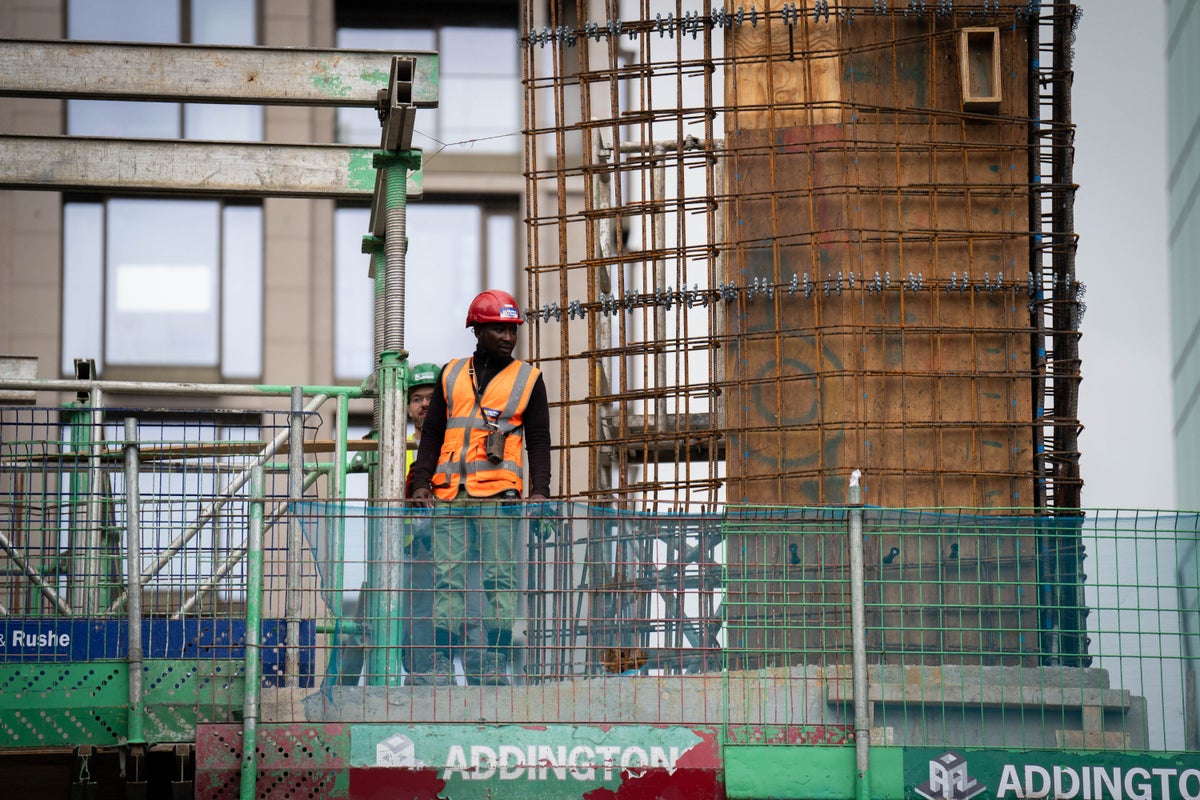
The UK’s construction sector returned to growth in July as an uptick in commercial work offset sharp falls for residential housebuilding, as interest rate rises and cost-of-living pressures dealt a “hammer blow” to the housing market, an influential survey has found.
Builders saw delivery times shorten at the fastest rate last month since 2009.
The latest S&P Global/CIPS construction purchasing managers’ index scored 51.7 in July, up from 48.9 in June and the highest level for five months.
Any score above 50 indicates the sector is growing, whereas a score below means it is contracting.
The uplift last month was driven by commercial building activity, such as building offices for corporate firms, and civil engineering work which continues to show a strong performance.
But residential housebuilding recorded its eighth month in a row of decline, the survey found.
Construction firms said that rising borrowing costs led to fewer sales inquiries and slower decision-making among customers in July, as the impact of higher interest rates deepens a slowdown across the housing market.
Dr John Glen, chief economist at the Chartered Institute of Procurement & Supply (CIPS), said: “Although the sector showed a slight uplift in activity in July, there is a question mark over the sustainability of this growth and the challenges that lie beneath the floorboards.
“Decisions about buying a new home are being delayed by many consumers.
Although the sector showed a slight uplift in activity in July, there is a question mark over the sustainability of this growth and the challenges that lie beneath the floorboards— Dr John Glen, chief economist at CIPS
“Another fall in residential building levels and for the eighth month in a row, it’s obvious that UK interest rate rises and cost of living pressures have dealt a hammer blow to the housing sector.
“The commercial and civil engineering sectors remained the only engines of growth last month.”
But in a bright spot among the data, weaker demand for building work and fewer supply bottlenecks meant delivery times shortened to the greatest extent since March 2009.
Cost pressures also eased for some construction firms, but others reported that still-high inflation and higher wage costs were still pushing up purchasing prices.
Resilient demand from corporates is preventing a sharp downturn in overall construction output— Samuel Tombs, Pantheon Macroeconomics
Businesses reported feeling generally optimistic about activity for the year ahead. But the survey flagged that budgets being squeezed by higher interest rates is expected to hold back growth across the sector.
Samuel Tombs, chief UK economist at Pantheon Macroeconomics, said: “Resilient demand from corporates is preventing a sharp downturn in overall construction output.
“Corporates under-invested throughout the years of Brexit uncertainty and the Covid crisis, and therefore have entered this period of monetary tightening with relatively little debt, excess cash, and a wide range of capital projects that still are profitable to undertake even with higher borrowing costs.
“It’s still too soon to talk of a recovery in the construction sector – new orders are simply flat – but with the bank rate likely near its peak and supply chain issues having been resolved, it’s increasingly looking like a sharp sector-wide downturn has been avoided.”







